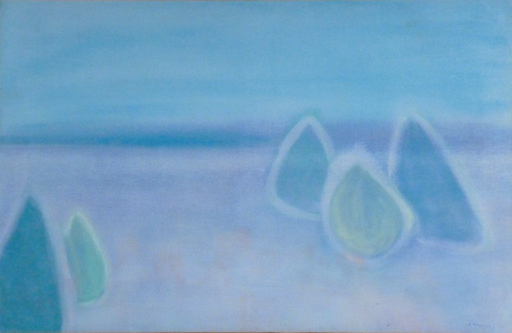
Sweet Fruit
by ANISA BAHAMIN
Like other teenagers I dreamed of going to a respected university, getting a degree that is valued in my country, and finding a good job. Because I am a Bahá’í living in Iran, I knew it would not be easy, but whenever I wavered, I heard my mother’s voice echoing in my mind, “Embracing hardship gladly will bring sweet fruit in the end.” My mother always reminded me of the hardship Bahá’u’lláh suffered in prison and throughout His life.
After I graduated from BIHE (Bahá’í Institute for Higher Education), I went for several interviews and finally found my dream job — a position in the sales department of an IT company. On the application form, I had to specify my religion. I don’t know if the manager looked at this section, but he was so impressed with my resume that he immediately offered me the job. I was thrilled, since, against all odds, I had landed my dream job.
The first day of my work was different from any other day. I felt I had a fresh start at life. Finally, I could achieve real independence by making my own living. I felt exhilarated! I dressed neatly and went outside to hail a cab to take me to work. As I stepped out of the cab, I felt nervous — a mixture of joy and fear.
The company was housed in a three-story building, with six rooms on each floor. As soon as I walked through the door, the manager greeted me warmly. He led me to my office where four other employees were working on computers. After I introduced myself to the others, the manager took me to the supervisor and asked him to teach me how work with various software programs. This supervisor had heavy facial hair, both a beard and a mustache. I noticed that he did not look me directly in the eye. His eyes seemed to wander around the room as we spoke. I did not feel comfortable with him because I could sense that he valued men more than women.
The company had a method of increasing sales on Islamic holidays by tricking their customers. They advertised their company by targeting Islamic holidays such as Ghadir Ghorban to offer false perks to customers. My supervisor expected me to do the same. But I did not want to lie to customers, so I did not follow this practice. I had not been working in the company long before my supervisor complained to my boss about my work and then asked to see my resume. When he discovered that I was a Bahá’í, he began to treat me badly. Eventually, he insisted that I declare myself a Muslim. When I refused, he threatened to fire me. I did not argue with him; instead, I calmly explained that I was not willing to trick customers, especially with the excuse of a religious holiday. He was furious with me and accused me of being anti-Islam.
When I realized that he was going to fire me, I decided to preserve my dignity and took it upon myself to quit. I said to him, “If this is the way you run your company, I would rather not work here.” I felt proud of resigning from my job for the sake of my religion and my principles, and I felt confident that I could find another job in future.
All of this happened some time ago, but even now, years later, I can still hear my mother’s voice, “Embracing hardship gladly will bring sweet fruit in the end.” Before my experience at this job, my mother’s advice seemed only words to me. But after I quit, the words began to resonate in my soul and have continued to do so ever since.
I am glad I could bear this hardship because of my religion, and my heart is filled with happiness when I ponder the effect of Bahá’u’lláh’s teachings in Iran as they send their spiritual emanations into the world, like a pebble rippling outwards in still water. Such thoughts strengthen me to resist the forces of darkness and choose, each day, to step into the light of certitude.
* Originally published in e*lix*ir issue #7
Painting “Blue Terrain” by Catharine McAvity

